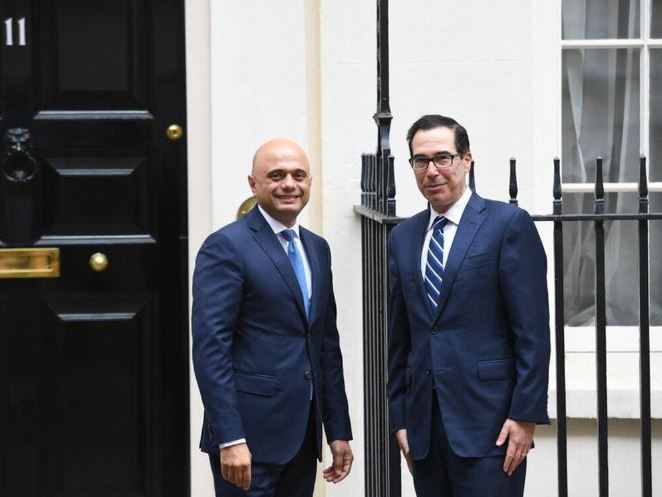US Treasury Secretary, Steve Mnuchin, says he want to complete a trade deal with the United Kingdom in 2020, i.e., this year. He does not see why the UK cannot negotiate deals with the EU and US simultaneously.

The UK leaves the European Union on 31st January, i.e., Brexit happens next week, after which the country can negotiate trade deals with nations that have no current arrangements with the EU. The US is in that category.
Two giant trade deals in 2020?
UK Prime Minister Boris Johnson and his team believe they can conclude a deal with the EU by the end of this year. If both deals are signed by 31st December 2020, Britain will have acquired access to the world’s two largest economic regions.
Mr. Mnuchin met Britain’s Chancellor Sajid David for a working breakfast on Saturday morning. He posted a photograph of the two men on Instagram, in which he wrote that America is “prepared to dedicate a lot of resources” to making sure a trade deal is signed this year.

UK and US economies similar – good for trade deal
Mr. Mnuchin said:
“We’ve said that our goal … your goal …is trying to get both of these trade agreements done this year. And I think from a US standpoint we are prepared to dedicate a lot of resources.
“If the UK and US have very similar economies with a big focus on services, and I think this will be a very important relationship.”
The US recently completed Phase I of a trade agreement with China. It is now a top priority to go full steam ahead to get a deal with the European Union and the UK, Mnuchin explained.
Some hurdles
A reporter asked the US Treasury Secretary whether the UK’s plan to impose a digital services tax on Google, Facebook, and other technology giants could undermine the negotiations. Mr. Mnuchin said he and the British Chancellor discussed the issue during their working breakfast.
If the EU follows through on its threat to implement a new tax on American tech giants, the US says it will raise tariffs on their products.
Mr. Mnuchin added:
“The U.S. feels very strongly that any tax that is designed specifically on digital companies is a discriminatory tax and is not appropriate.”
